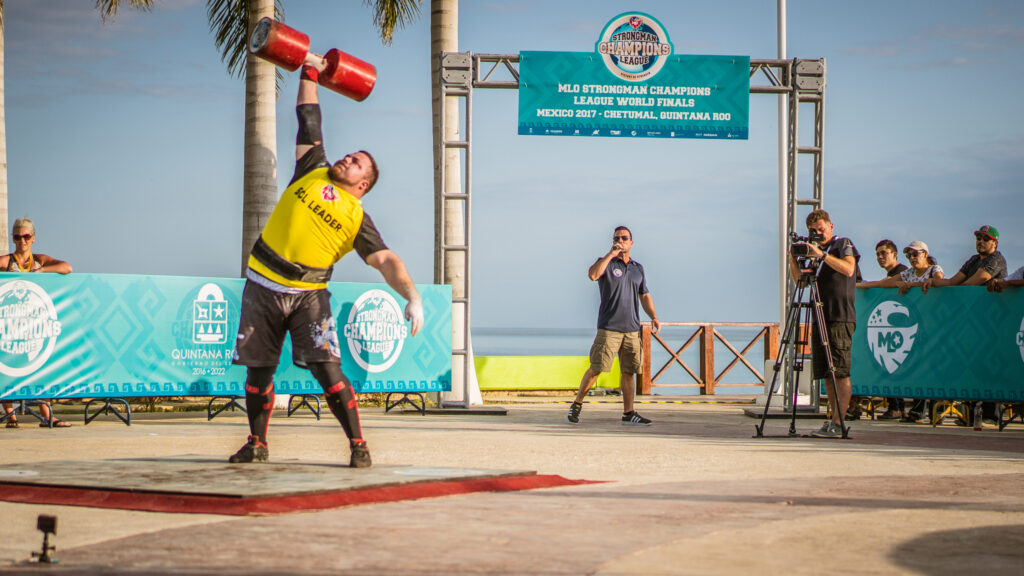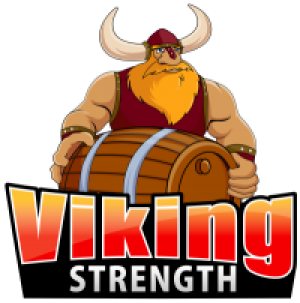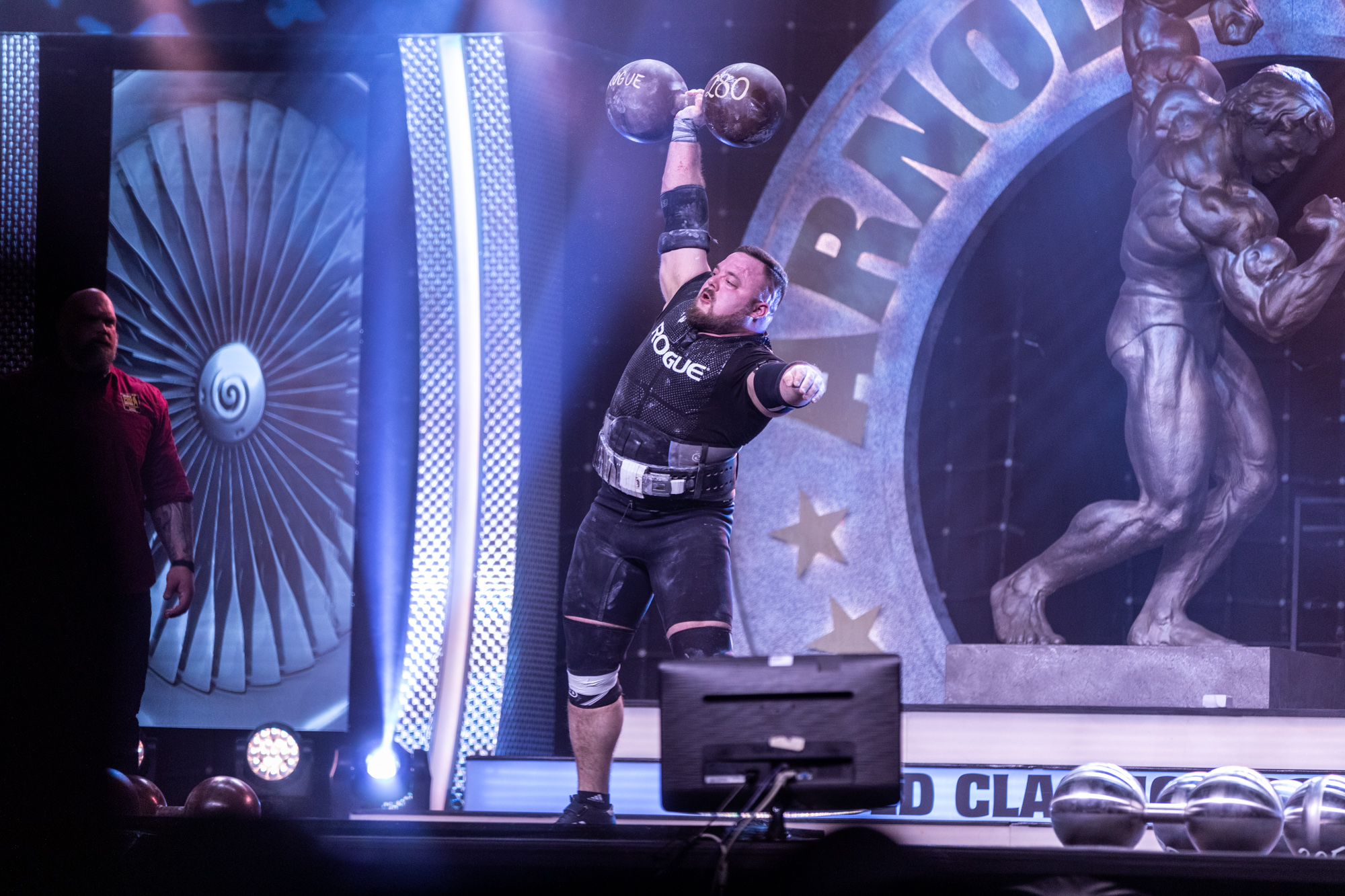I first met Matjaz at the 2018 World’s Strongest Man competition in Manila, Philippines. He is a really down to earth athlete, well spoken and more than willing to spend his time talking, to a strongman fan boy like myself.
He was soaring in the sport, not one of the heavier big name athletes, but he was placing winning or placing highly across different strongman organisations, but then as quickly as he had seemed to arrive on the pro strongman scene, he just disappeared.
So I caught up with Matjaz to find out what had happened???
Phil Burgess: You were arguably in the top 20 strongmen in the world between 2015 and 2018, then you seemed to disappear? What happened, and where are you at now with returning to the competition stage.
Matjaz Belsak: Yeah, that’s true from 2015 to 2019 I was competing in the top level of strongman, and I was always in the top 10 at that time. In 2017 a little bit of a problem in my hip started, and then in 2018 it got worse and I started having problems with my back and quadriceps.
In 2019 I still competed in the Arnold Classic finals and actually that was my best result with 5th place, even with this injury. Actually, at that time I couldn’t even deadlift from the floor in training, so I had to lift from 50cm or higher. I had to push myself in the competition and still managed to lift 400kg, which I know is nothing amazing, but I still got some points from this event finishing 5th overall.
What I’m really proud of is the result, I know it is not the smartest thing for my body to train and compete like that, but it was a big achievement with my mind to be able to train and come so far and therefore one of the biggest achievements for me in Strongman.
My hip had got arthritic and the bone had grown a bit different so the range of motion was really bad, and at the end before the Arnold Classic and I had surgery I could only lift my right leg just 10cm from the floor, and that was for sure a big problem for the competition.
You cannot pick up something from the floor normally, you cannot deadlift, you cannot squat, you cannot carry, everything was a big problem.
Now 3 months after the surgery, it is getting better, but I will need time with my range of motion. I lost that flexibility over 3 years so it will take more than 3 months of rehabilitation to get it back.
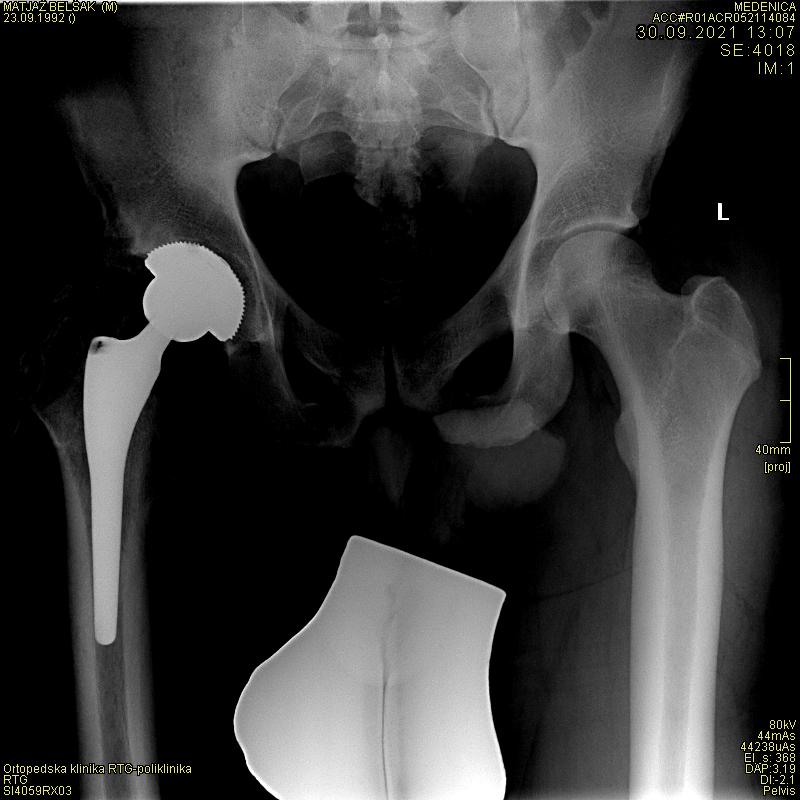
I can walk normally now, only if I sit to long and then stand up I have pain, as some muscles and tendons need to stretch after that. Everything else is a lot better than before surgery, walking, sleeping, doing normal life things are easier and that’s good.
I’m back training now slowly step by step, I’m planning on doing Slovenia’s Strongest Man next year (2022), and start with some smaller competitions before that if I feel good. I will then see how the body will feel, and how the body has responded to the heavier training. If my body feels good I plan to come back and compete at the high level, but in strength sports you cannot really do much if you are forcing things on your body.
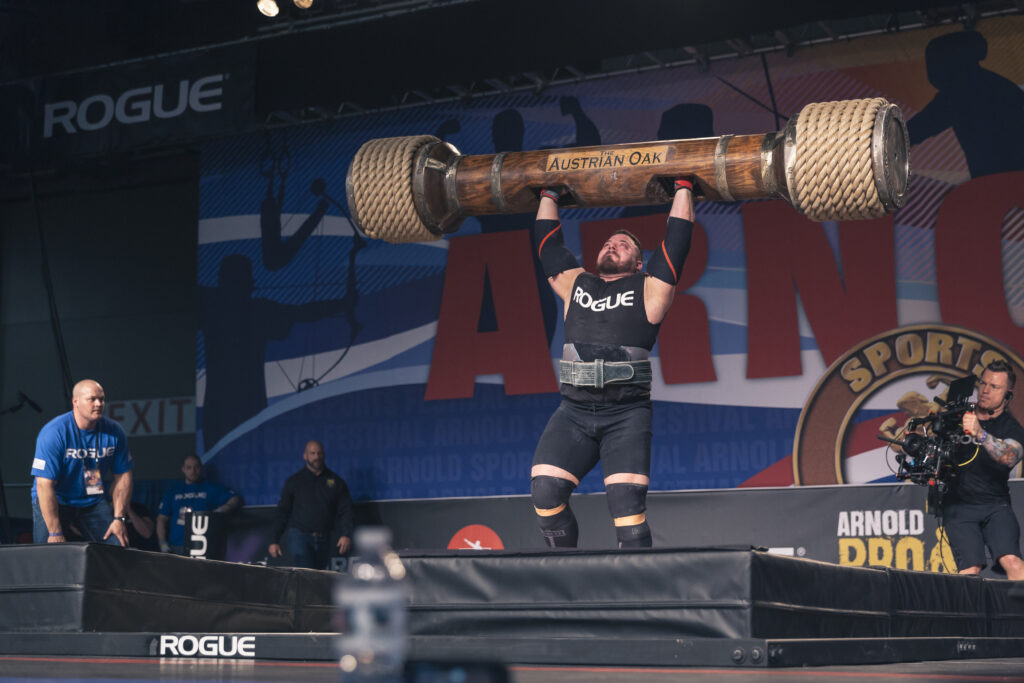
Phil Burgess: Which result means more to you and why? winning the 2017 SCL or coming 7th at the 2018 World’s Strongest Man competition?
Matjaz Belsak: I think about:
- The win with Hafthor Bjornsen in the team event in 2015.
- The 2017 SCL Champions League win as it’s the overall win over a season
- The two times in the finals of 2016 and 2018 World’s Strongest Man
- The fifth place in the 2019 Arnold Strongman Classic Final
- The 2017 Arnold Strongman Classic Europe win.
I think the one I think about the most is the 5th place at the Arnold Strongman Classic Finals.
I would still put Worlds Strongest Man a little bit in front of Strongman Champions League, because in WSM they are really the 30 best athletes in the world, in the one place at the one time.
Phil Burgess: In Slovenia how well known is the sport of strongman? Is it growing as a sport or the same for the last few years? What do you think could be holding back strongman from growing in Slovenia?
Matjaz Belsak: In Slovenia the strongman sport is really not a big sport for now. We are 2 million people, and right now just a couple of guys are training for strongman. I try to do a small competition every year, like a Slovenia’s Strongest Man, but in the last 2 years we haven’t done it because of Corona.
I’m happy that strength sports are growing because Powerlifting in Slovenia is growing very well, with young people training, and they are having more and more competitions and competitors at each one, and it’s a great sport.
If we have more people training in strength sports there will be more possibility that athletes from other sports can come to strongman. In strongman the problem is the events are so heavy and people don’t have the equipment, and we need to change something here.
I’ve done an outside area for strongman at my gym, and I have inside equipment for strongman. I have almost everything you need for strongman. Although in Strongman the story is never-ending, you can always have something more, you can have a car walk, you can have a truck, whatever you think about, you can never have everything, but we are going in the right direction.
For this year, I’m planning a competition and for next year more smaller competitions and Slovenia’s Strongest Man.
To make the sport better and to get it to more people, I think we need better and more opportunities. This means more gyms with strongman equipment, more competitions and more smaller competitions. With more competitions for newcomers people have the possibility to do it, and more people who can do it, will mean more people will do it.
That’s why I think football is such a big sport, because everyone understands it, and everyone can play it a bit, just need a ball and you can start so easy. This is the negative part of strongman, you need a real place, real equipment, you need things which are not so easy to get. That’s the sport….
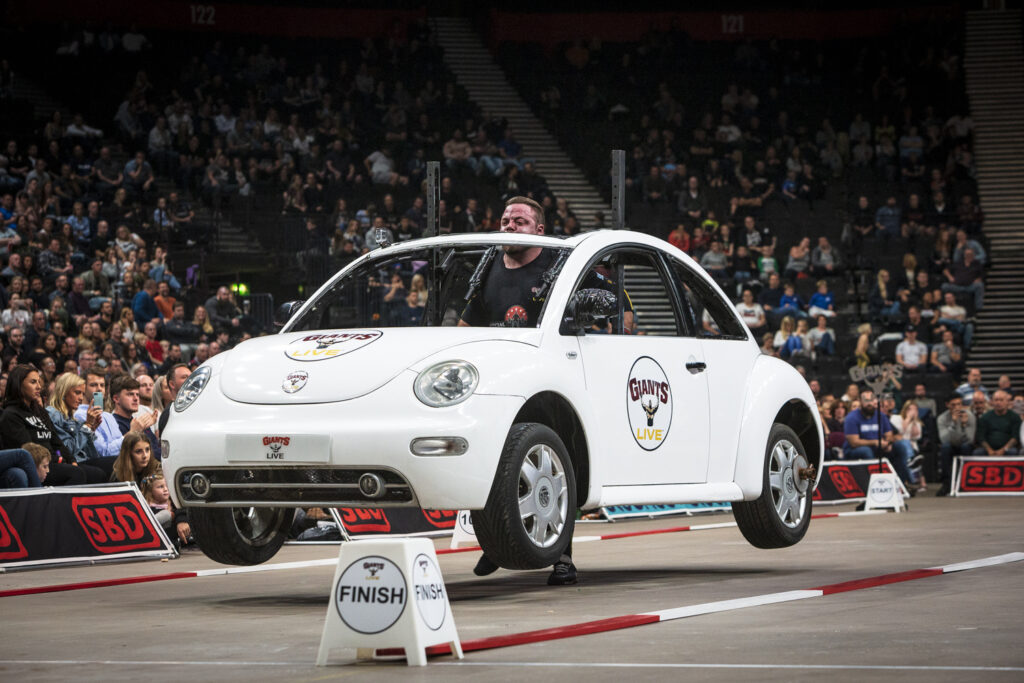
Phil Burgess: For those people who have never been to Slovenia, why should they visit your country? What makes it great in your eyes?
Matjaz Belsak: I think Slovenia is one of the most beautiful countries in the world. It is a small one with only 2 million people, and the length of the country is only 350km. The good things are that we have four seasons, with all kinds of weather, snow, sun, hot, rain and everything.
The winter is normally from November/December to February/March, then it is spring and then the summer starts around June and goes to September. Depending on what weather you like, you should time your holidays around that.
In Slovenia we have so many different things and nature is so beautiful, we have rivers, we have lakes, we have islands in the lake, one with a big castle, which is one of the most known places in Slovenia. We also have a little bit of Sea, so many different things.
If you are located in the capital, Ljubljana in the middle of Slovenia, within 1.5 hours you can go almost everywhere. If you like hiking, you can go to the mountains. If you like the sea, in 1 hour you can go to the seaside. So, it’s 1.5 hours to anywhere, so you don’t need to change your hotel every day.
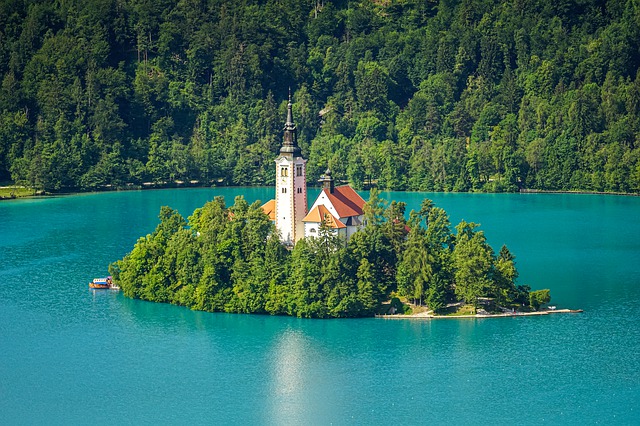
Phil Burgess: What sports did you do before strongman? And how did you get involved in strongman?
Matjaz Belsak: When I was younger, I did a little bit of Judo for fun. When I was 17, I did my first Powerlifting competition, and at the end of that year my first strongman competition.
I then competed in Powerlifting and Strongman from 17 to 19 and then from 19 I just did strongman.
In my last powerlifting competition when I was 19 years old, I did 360kg squat with knee wraps, 190kg Bench Press, and a 325kg Deadlift, and I still hold the world record for that age, in that federation.
When I was 17 training for powerlifting, I had a friend Gregor Stegnar, he was the best strongman competitor before me, and whenever I was competing in Powerlifting, he helped me with advice.
After my first powerlifting competition, I started training sessions for strongman outside his house, and then we arranged for me to compete. He said we have the Pro League and we have the beginners, so we have two training sessions and I go to the beginners competition (at 17) , and I finish second with the same points as the first person.
It was great because before the competition one of the speakers said what is the joke with you coming here at 17. I said I train a little bit, and I want to have fun and compete. He was a little bit shocked when I came second.
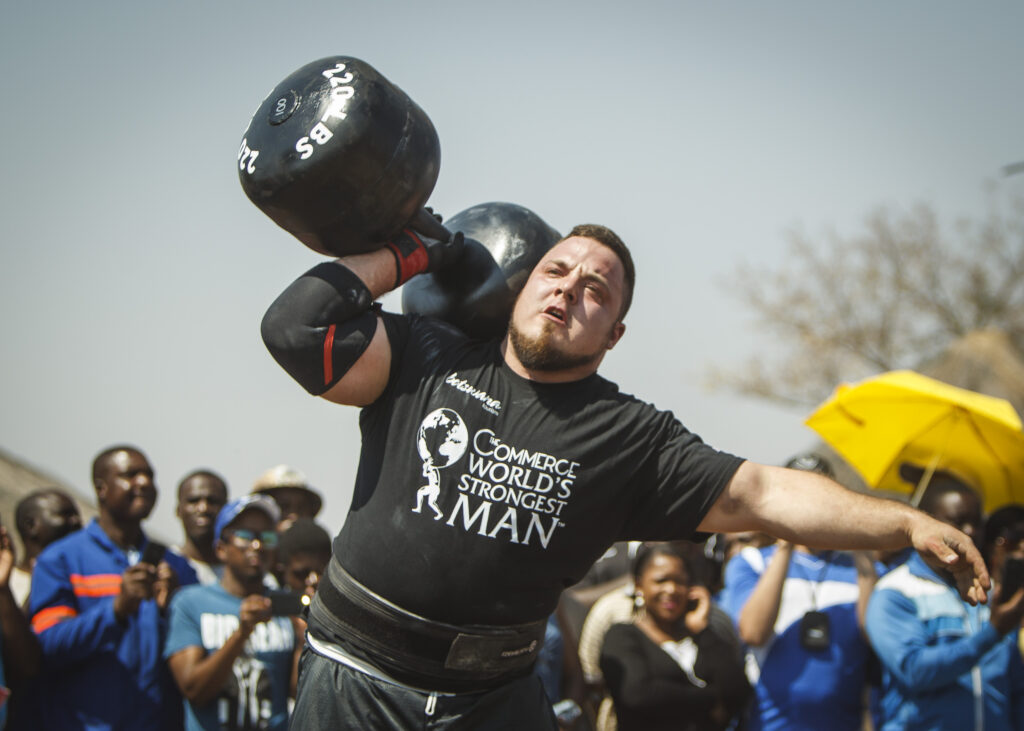
Phil Burgess: Outside of the sport of strongman do you have any other interests?
Matjaz Belsak: Up until 2020, everything I did was connected to strongman, it was food, training, rehabilitation. When I went on holiday, I needed to check where I could train.
I never wanted to go swimming because I knew I would have a heavy training session coming up.
I was a little bit lazy, maybe a lot, I just had this tunnel vision of just seeing the things I was focused on.
I did enjoy spend good times with friends and family and getting good food. I still like cooking, but overall, I did not do anything other than strongman from 2012 to 2019.
Actually, one thing I like to do is weld with Iron, but… still it is connecting with strongman, as if we want equipment we try and build it ourselves, or if something is broken or needs to be changed, I can do it.
Phil Burgess: How do you recover from big competitions? What is your process?
Matjaz Belsak: I think the recovery process from big competitions is very important, and I think that it also depends on how much time between each event and how many event there was. It also depends on how long the travelling back home, with good or bad connecting flights.
If you are competing in a hard big competition in Australia, you then will have lots of hours of flying to come home and you will be totally tired from flying with jetlag which makes the recovery process even longer.
When I get home if it is the afternoon or evening, I like to eat something good, have a shower and rest a little bit and then have a good sleep in my own bed. The next day I will try to wake up normally, have breakfast and start to move a little bit. I will try to do 2 training sessions on the first day and second day which would be really really light. So, if I was doing shoulder press it would be just 20-40kg, for more reps and more sets, just to get the blood flowing in my body. I make sure I get some good sleep in those first couple of days, with good food, and maybe a massage.
I’m not a fan of sauna.
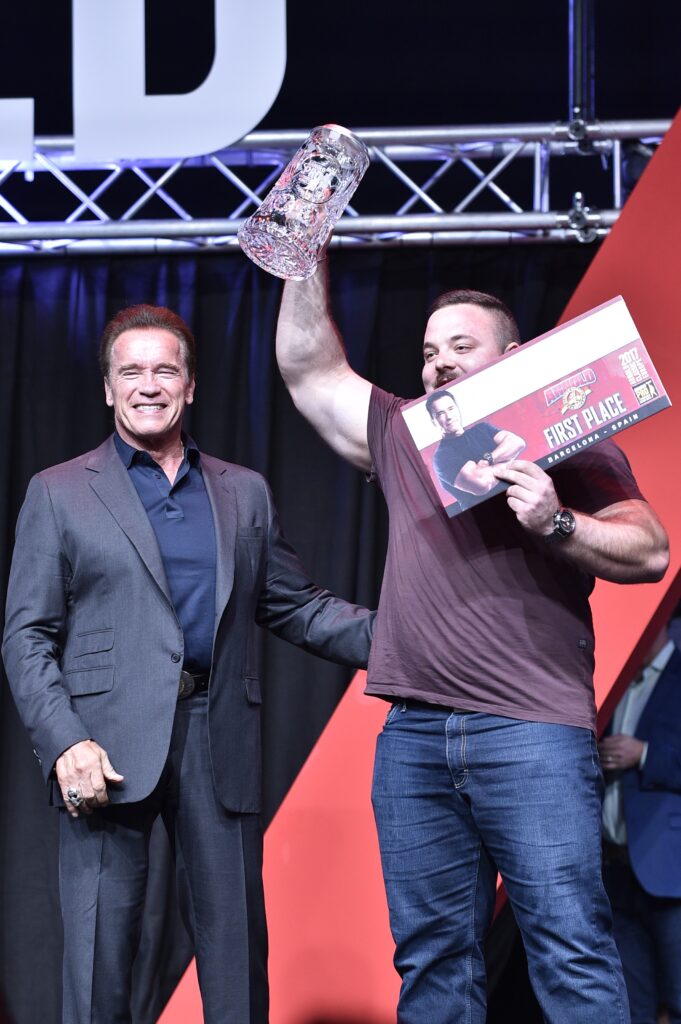
Phil Burgess: Is Strongman your full-time occupation, or do you have another job, if so what is it, and how easy is it to fit in with your training?
Matjaz Belsak: Strongman always was my full-time job, but I was always doing some other stuff. In the years when my strongman career was the best, I was working in my home restaurant, but on a part-time basis.
I would work at the weekends, so I would not train at the weekend. I would train Monday, Tuesday, Wednesday and Friday. I planned my training around my work, when I was not away competing.
I also finished the School of Hospitality and Tourism course, and I also do some online coaching, and I look after SBD Slovenia.
The rest of my time was spent training, eating, massages, preparing equipment, searching for equipment, because I have my own gym and have to take care of my own equipment, not like I take my training bag and just go somewhere to train.
I need to think about what we can improve and what we can do better.
Phil Burgess: You have competed in competitions from different strongman organisations. Do you think it is good for the athletes to have different organisations to compete in, or would you prefer one global strongman organisation? If you ran strongman, what would you do?
Matjaz Belsak: I competed in all strongman federations but you don’t need to compete in all of them. The problem is that you cannot do too many hard competitions, so you need to decide which ones are more interesting for you, and which ones have more benefits for you.
The better organisations we have the better it is overall, of course if we have too much it wouldn’t make sense, but 2,3,4, we have more opportunities.
This also means we have more competing between the organisations, so they have to put in more effort, create better prize money, create a better event and have better hotels for the athletes.
If I was to run an international strongman event, it’s hard to say what I would do, because to do this you need to have enough money, for the above points, and enough of everything to make a good event. It is important that the athletes are happy and healthy, with good events and that the spectators enjoy the event as well.
We need to show people around the world strongman and how the point system works, and what the rules are. The more the people understand strength sports the more they can become interested in strongman, the more fans we can have and the bigger prize money we can have, the better events we will have and the better athletes.
Phil Burgess: Thank-you for your time, and I hope to see you on a Pro-Strongman stage soon.
